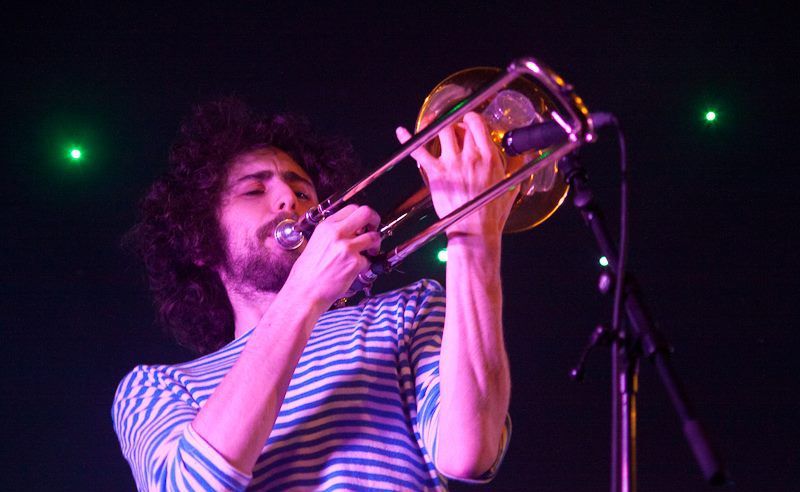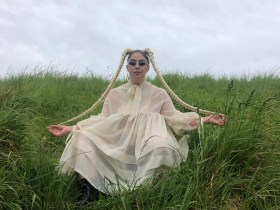‘The arts/jazz was not even in the conversation vis-a-vis emergency/ongoing funding support. We need to find grass-roots leadership who will raise these matters to State and Federal levels.’
– Club/Artist Collective member/photographer, VIC
The key to listening and learning is to talk with people, not just to them. To help or work with someone, you can’t just look from afar and decide what is required: you need to ask how they feel, what they need, what they want – you need to engage with them.
Data is king, but it is not just about numbers. Qualitative data about how we perceive and feel about things must also be considered. The answers to these kinds of questions can be powerful at a political level, and they can also help us understand our own communities better. Our energies can be more carefully targeted as gaps are identified and strengths are utilised.
Criticism of the Federal Government’s $250 million Creative Economy Support Package to date has focused on the fact that it is neither comprehensive nor adequate in its response, not to mention that funds are yet to even start flowing.
Given the upcoming Parliamentary Inquiry into Australia’s creative and cultural industries, it is imperative to consider not just the impact of COVID-19 on our lives and how to recover, but also how we can use the opportunity to have our individual and collective voices heard to best effect. It is a chance to express what we need now and what we want our future to be. It is an invitation for us to engage.
Read: 8 arguments to include in your Parliamentary Inquiry into the Arts submission
In immediate response to the initial spread of COVID-19 in Australia, all live performances –including jazz – stopped in mid-March, followed by nationwide lockdowns, cancellation of events and harsh limits put on gatherings. Everyone has been affected by this pandemic.
A recent survey of 238 members of the Australian jazz sector has detailed the impact of COVID-closures, particularly in terms of:
- Creative practice
- Economic Activity
- Financial support
- Wellbeing – physical and mental
- Engagement/connection to broader structural infrastructure/institutions
Survey respondents included artists, venues, festivals, teachers, students, media, audience members and others, three quarters of whom were metropolitan based. One third of respondents identified as female and 1% identified as non-binary.
Read: Coronavirus: Australian jazz on the edge
The survey results demonstrate a massive negative impact upon the jazz community in terms of activity, loss of income and wellbeing, both physical and mental. The results also highlight a feeling of strong disconnect between the Australian jazz community and various organisations and avenues of support.
The impact has been devastating, according to the survey results:
- Music related activities – 93% of respondents have lost work
- Income – 84% have lost money
- Physical wellbeing – 39% worse off
- Mental wellbeing – 75% worse off – with 1 in 4 stating a “huge decrease”
A handful of people reported positive impacts of the lockdown in regard to physical and mental wellbeing, 10% and 5% respectively. This is likely due to enforced time off allowing for self-care. Overall, the impact has been overwhelming negative, especially in terms of mental wellbeing.
Unsurprisingly, the survey also showed evidence of correlation between financial security and wellbeing.
For those receiving JobKeeper/JobSeeker but not enough to cover their current financial needs, the numbers of people reporting negative impacts on their mental and physical wellbeing increased by 15% and 30% respectively, in comparison to those saying they were sufficiently covered.
So where are we going?
‘Musicians and Artists in general have been neglected across the board. Yet it is we who define culture, society and play important roles in defining and questioning who we are as humanity, who we want to be, where we’ve come from.’
– Musician/composer/teacher, VIC
The jazz sector is feeling very little optimism about what the ‘other side of the bridge’ looks like, especially in terms of the national sector, local scenes and international engagement. A majority of respondents described their uncertainty of what the roadmap leading to something familiar actually looks like. And this was before the second Victorian lockdown was implemented, which is likely to exacerbate some of the issues identified and compound the impacts.
The impact of COVID-19 and the Government’s response has impacted heavily, as indicated by the survey results:
- Musical/economic activity is hugely diminished
- Physical and mental wellbeing issues directly influenced by financial insecurity
- Gaps in JobKeeper/JobSeeker support
- Insufficient and low level of funding for the sector
- Lack of engagement with all levels of government
- Lack of strong networks and engagement across the sector
Some of these issues were pre-existing and systemic across many sectors – consider the ongoing and current debates regarding education, science, health and aged care, for example. The pandemic has simply exposed the weakened fragility of our economy’s interconnected structures. But hopefully by quantifying and understanding some of these issues, it will be easier to form strategies to address them.
Steps forward
‘Live jazz performance is what keeps me positive and psychologically balanced. The sector’s impact is wider than straight economics and should be valued accordingly.’
– Audience/supporter, QLD
There are real challenges ahead, not just for us, not just for Australia, but for the whole world. There will be no ‘snap-back’, but on a positive note there are conversations taking place that look at how we move forward. Jazz needs to be included in these discussions: not just as a listener but as the vital contributor it is to the larger contemporary music sector.
We need to develop stronger unity and communication throughout our sector – as a united community we will have a stronger voice.
Within the scene we know there are many different facets and approaches to jazz, but from the outside we are lumped together under one label – let’s use our collective strength to help each other.
We need to understand the value of our endeavours and the contribution we make to driving economic activity as well as contributing to social cohesion, national identity and wellbeing.

Trombonist James Macaulay took out the 2017 National Jazz Award. Photo credit: Aaron Choulai.
We need to engage with all levels of government in meaningful discussions about mutually beneficial partnerships to assist ourselves, our communities and the broader national economy.
We need to stand up for ourselves but work with others to ensure we all get through. We are often left fighting for our piece of the pie, instead of sharing what we have with each other or working together to make more pies.
We do not have to wait – we can be the recovery.
We can start earlier than most live music. We are familiar with smaller venues, often with seated audiences and lower production costs. The intimate, often acoustic nature of jazz makes it ideal for when things begin to open up. We are used to operating on shoe-string budgets. We can play in all sorts of alternative spaces, including outdoors. We can be light and entertaining or present serious concert-style performances. We have artists and audiences across all generations. We play a music that comes from and celebrates diversity.
Consider what we have achieved with a lack of infrastructure, industry and funding over the years. Imagine if that funding was doubled? What if 10% of our activity was properly funded instead of the 3-6% of activity as currently estimated? What about 15%? What if we had access to non-competitive funding, available in other sectors, whereby fulfilling certain criteria brings success? What if there was actual societal change with something like an artist’s wage or Universal Basic Income?
Right now, Australian jazz is suffering deeply due to the pandemic as well as a long-term neglect of support for our sector.
We share a passion for a style of music with deep roots that helps connect us as a community. Let’s find a way to use our strengths to help one another at the same time we contribute to our nation’s recovery in the coming years.






